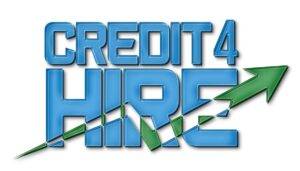The Benefits of a Good Credit Score and How to Achieve It A good credit score is an essential component of your financial health. It affects your ability to get approved for loans, the interest rates you’re offered, and even your chances of getting a job or renting an apartment. With so many benefits, it’s no wonder that so many people strive to achieve a good credit score. In this blog, we’ll explore the benefits of a good credit score and provide tips on how to achieve it.
Benefits of a Good Credit Score
Better Loan Options: A good credit score opens up doors to better loan options and lower interest rates. This can save you thousands of dollars in interest over the life of a loan. For example, let’s say you take out a $20,000 car loan with a 5-year term at a 10% interest rate. If your credit score is excellent, you might be offered an interest rate of 7%. Over the life of the loan, this could save you nearly $1,500 in interest charges. Increased Access to Credit: A good credit score also makes it easier for you to get approved for credit, allowing you to finance big purchases and achieve your financial goals. Imagine you’re in the market for a new home and need a mortgage to finance the purchase. With a good credit score, you might be approved for a mortgage with a lower interest rate, which could save you tens of thousands of dollars in interest over the life of the loan. Lower Insurance Premiums: Many insurance companies use your credit score to determine your insurance premiums. A good credit score can result in lower premiums, saving you money each month. For example, if you have a good credit score, you might be offered a lower rate for your car insurance, which could result in savings of hundreds of dollars each year. Improved Employment Opportunities: A good credit score can also help you in your career. Many employers now check credit reports as part of their hiring process, and a good credit score can help set you apart from other candidates. Consider the scenario of two job applicants with similar qualifications and experience, but one has a good credit score while the other has a poor credit score. The candidate with the good credit score is more likely to be hired, demonstrating the importance of having a good credit score in the job market. Better Rental Options: A good credit score can also make it easier to rent an apartment or get approved for a lease. Landlords often use credit reports to evaluate potential tenants, and a good credit score can increase your chances of getting approved. For example, if you’re looking for a new apartment and have a good credit score, you might be approved for a lease without having to provide a co-signer or pay a higher security deposit.
How to Achieve a Good Credit Score
Here are some steps you can take to achieve a good credit score:
Pay Your Bills On Time: Late payments have a significant impact on your credit score. Every time you miss a payment or make a payment late, it’s reflected on your credit report and can lower your credit score. To avoid this, make sure to pay your bills on time, every time. Keep Your Credit Utilization Low: Your credit utilization, or the amount of credit you’re using compared to your credit limit, also affects your credit score. A high credit utilization ratio can signal to lenders that you’re overextended and struggling to manage your debt, which can lower your credit score. To keep your credit utilization low, try to keep your credit card balances below 30% of your credit limit.
Check Your Credit Reports: Checking your credit reports is an important step in maintaining a good credit score. By regularly reviewing your credit reports, you can ensure that the information being reported is accurate and up-to-date. Here are a few things to keep in mind when checking your credit reports:
Check All Three Major Credit Bureaus: It’s important to check your credit reports from all three major credit bureaus, as they may not all have the same information. You are entitled to one free credit report from each bureau each year, which you can obtain at AnnualCreditReport.com. Look for Inaccuracies: Review your credit reports carefully and look for any errors or inaccuracies. This could include incorrect personal information, such as your name or address, or errors in your payment history, such as late payments that you did not miss. Dispute Any Errors: If you find any errors on your credit reports, it’s important to dispute them with the credit bureaus. You can do this by contacting the bureau directly and providing documentation to support your dispute. The credit bureau will then investigate your dispute and correct any errors if necessary.
Reducing Debt: High levels of debt can have a negative impact on your credit score. This is because it signals to lenders that you are a higher risk borrower, as you have a large amount of outstanding debt that you may not be able to repay. To reduce debt and improve your credit score, consider the following steps:
Pay More Than the Minimum: When making payments on your debt, aim to pay more than the minimum amount due. This will help you to pay off your debt faster and reduce the amount of interest you are charged. Prioritize High-Interest Debt: If you have multiple sources of debt, prioritize paying off the debt with the highest interest rate first. This will help you to save money on interest charges and pay off your debt more quickly. Consolidate Debt: If you have a large amount of debt, consider consolidating it into one loan with a lower interest rate. This can make it easier to manage your debt and pay it off more quickly.
Consider a Secured Credit Card: If you have no credit history or a poor credit score, a secured credit card can be a great way to build or rebuild your credit. A secured credit card is a type of credit card that requires a security deposit, which is used as collateral for the credit card. By using a secured credit card responsibly, you can build a positive credit history and improve your credit score.
Common Myths About Credit Scores
There are many misconceptions about credit scores, and it’s important to understand the facts in order to make informed decisions about your credit. Here are a few common myths about credit scores and the truth behind them:
Myth: Closing a credit card will improve your credit score
Truth: Closing a credit card can actually have a negative impact on your credit score. This is because it decreases your overall credit limit and can increase your credit utilization ratio.
Myth: Checking your credit score will lower your credit score
Truth: Checking your credit score, also known as a “soft inquiry,” does not affect your credit score. Only “hard inquiries,” such as those made by lenders when you apply for credit, can have a negative impact on your credit score.
Myth: Carrying a balance on your credit card will improve your credit score
Truth: Carrying a balance on your credit card does not necessarily improve your credit score. In fact, it can have a negative impact on your credit score if you are unable to make your payments on time or if you are using a large percentage of your credit limit.
By dispelling these myths and providing accurate information, you can take control of your credit and make informed decisions about your financial health.
It’s important to understand the different types of credit scores and how they’re used. For example, there are several different credit scoring models, such as FICO and VantageScore, and each may use slightly different criteria to calculate your score. Understanding this information can help you make sense of the different scores you might receive and ensure you’re getting an accurate picture of your credit standing.
Another crucial aspect of credit education is knowing the role of credit bureaus and how they affect your credit score. Credit bureaus, like Experian, Equifax, and TransUnion, collect and maintain information about your credit history, which they use to calculate your credit score and provide it to lenders, employers, and other organizations who may be interested in your creditworthiness. It’s important to understand how credit bureaus work and your rights as a consumer so you can ensure your credit information is accurate and up-to-date.
In conclusion, a good credit score is a key component of financial health. By providing helpful tips, personal stories, and accurate information, you can achieve a good credit score and take control of your financial future.


